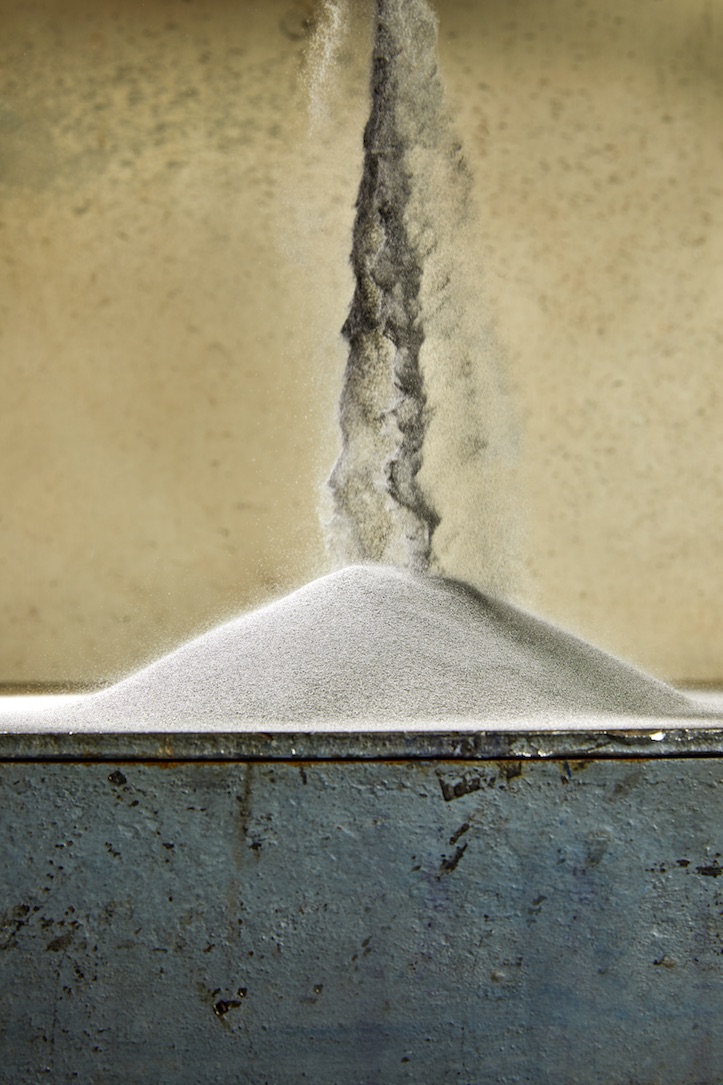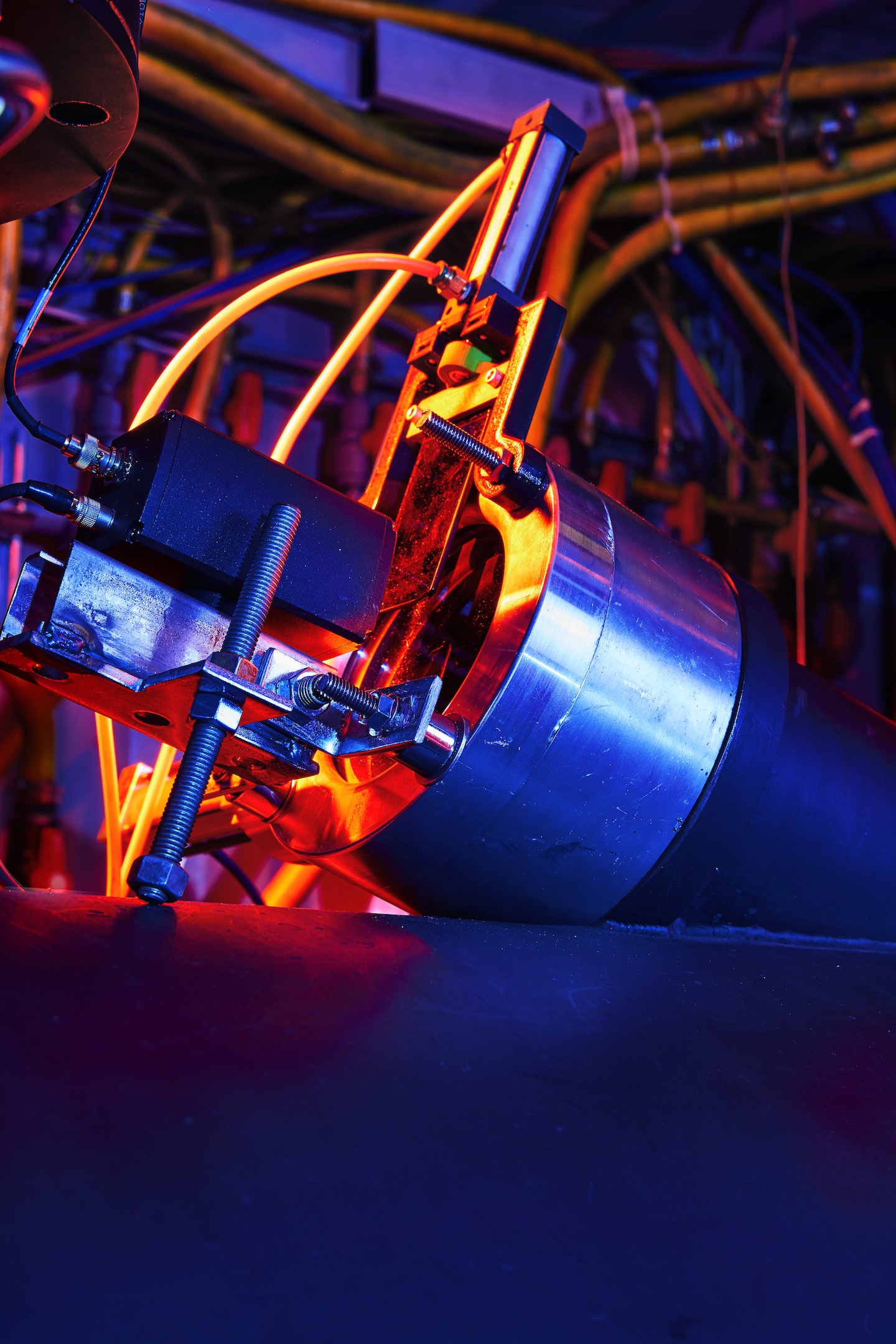The American company receives Formnext Start up Competition Award and also wins the AM Impact Ventures Award for sustainability. By Sabine Slaughter.
Every production process produces waste, and metal processing is no exception. The Greyhound, the name of the device for climate-friendly and sustainable processing, converts this waste into metal powder, which is needed in additive manufacturing.
Like many large companies now, MolyWorks has its origins in its own backyard and garage. This is where Chris Eonta and his partners, founded the company six years ago in 2015. "Where else could we safely experiment with 24,000 degree heat, melting plasma and destroying alloy after alloy?" says Chris Eonta mischievously. "The first version of this system was born out of necessity. With our vision to create an efficient way to recycle metal that minimises environmental impact and creates a more sustainable planet for generations to come."
The research phase took some time until, as of today, up to 21 different metals, including titanium, steel, nickel, copper and aluminium could be recycled. The goal of creating a mobile recycling station that closes the cycle of metal parts has been achieved today.
Thirty percent recycling rate
So far, only about thirty percent of metals are recycled, explains Chris Eonta, CEO of MolyWorks. A full seventy per cent ends up in landfills. However, the properties of metals do not change. This means that metal can be used over and over again. Depending on the composition or alloy of the current metal end product, different types of waste are produced, as metals are mostly mixed together with other materials or disposed of with other materials, since separating the components of an object is costly and consumes a lot of energy. The Greyhound enables scalability, automation and alloy selection for the new product or the powder from which the new product is to be created. It also ensures that only pure powder is produced according to the specifications. This eliminates the current major obstacles to the full recycling of metals.
Set up - no matter where
Several companies are already using the system, which consists, among other things, of a mobile melting furnace and an innovative powder nozzle - built into a container. This makes it possible to obtain new metal powder for additive manufacturing directly on site. Not only stationary companies can use the Greyhound, it can also be used "in the field". This means that the metal no longer has to be transported to the recycling site, but is recycled on site. The containers can be set up anywhere, as needed, and can be easily transported to another location.
"We don't need a special energy source. Our system can be connected to existing power lines, whether it's green energy or batteries," says Chris Eonta, CEO of MolyWorks. The interesting thing about this is that the metal waste is separated into its individual components within the system and accordingly the individual types of powder can be guided to a reuse.
The Greyhound for recycling metal scrap and waste can thus not only create a great savings potential for companies by eliminating the transport of hazardous waste, but also ensure that, as Chris Eonta points out, resources are saved in energy consumption.
Recycling in two steps
It sounds easy, but it is not: processing metals into powders requires two steps. They have to be melted and then sprayed into fine particles. This process is called atomisation. The Greyhound does this process in a much smaller space and more efficiently than other current systems.
The plasma cold fusion system creates powerful electric arcs between an electrode and the metal. A high-temperature plasma is then created by breaking down the gaseous atoms into their constituent nuclei and electrons in the path of the arc. Diverse application possibilities
Diverse application possibilities
The young company currently has customers in the space, land, air, sea, energy and defence sectors. Nasa has already stated that there is no other company that offers such a solution for materials. The recycling containers are already in use worldwide and will also be used for future space missions. The US Department of Defense, for example, uses them in the field to quickly and reliably produce materials for additive manufacturing of parts.
"At the moment, we are concentrating on processing the orders we have accumulated," says Chris Eonta. "We can describe our order situation as good. However, we need more investors to expand our fabrication. Of course, we will continue to research and add new metals and alloys to the materials our Greyhound can process, depending on the stage of development."
Traceability
Traceability of the metal powder can be realised by means of printed QR codes on the printed parts. Among other things, these QR codes can make it possible to determine where a particular part is located, what metal it was made from, as well as the life of the part.
Not just a random name
The name of the company MolyWorks is a reference to the element molybdenum. This has one of the highest melting points of all pure elements, is very corrosion resistant and is actually a mineral that the body needs to maintain health. Molybdenum is often added to alloys to increase strength. "Ironically, our first melting of molybdenum took place when we were contracted by Nasa to make Mo-W for their hypersonic applications," reports Chris Eonta.
Environmentally and climate friendly
An obvious climate benefit that also enables companies to reduce their production costs is that recycling metals requires significantly less energy than producing virgin metal. "For aluminium it's ninety-five per cent less, for copper it's ninety per cent less and for steel it's 56 per cent less," explains Chris Eonta. Air pollution is reduced by eighty-six per cent, energy consumption by seventy-five per cent and water pollution by seventy-eight per cent. The Greyhound thus enables companies to make their contribution to climate protection, reduce their carbon footprint and produce sustainably. The circular economy is fully supported with the Greyhound.
"The more we reuse metals, the less we damage the environment and the more we can protect our natural resources," concludes Chris Eonta.
